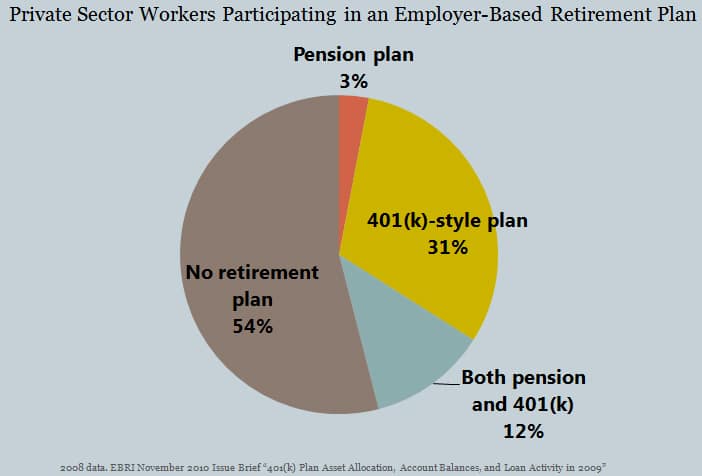Investing for Beginners: Top ETFs to Consider in 2023
With so many different investment opportunities, it can be difficult for beginner investors to know which products to focus on. Exchange traded funds (ETFs) represent a low-cost and diversified way to invest your money. Investing in ETFs helps you to create financial stability and aim for long-term growth. If you’re looking to start investing in 2023, here are the top 6 ETFs to consider, but let’s start with the basics.
What is an ETF?
An Exchange Traded Fund (ETF) is a type of investment that allows you to invest in a variety of different securities—including stocks, bonds, commodities, gold, silver, currency exchange markets, and more—at a discounted rate. In essence, ETFs are designed to provide investors with the benefits of diversity, liquidity, and low cost. For example, ETFs offer investors access to a broad array of securities with just one purchase, rather than having to conduct a potentially costly search for individual investments. Furthermore, ETFs are a cost-efficient way of diversifying an investment portfolio due to the ability to buy a smaller amount of each security at a lower cost than purchasing individual stocks. Investing in ETFs is an ideal choice for portfolio diversification, as it allows for easy access to a wide variety of asset classes, including stocks and bonds.
Vanguard Total Stock Market ETF (VTI)
Vanguard Total Stock Market ETF (VTI) is an exchange-traded fund (ETF) that offers investors exposure to thousands of publicly traded companies representing the full spectrum of the US equity markets. It tracks the performance of the CRSP US Total Market Index, which includes large, mid, and small-cap stocks. VTI has a solid track record of delivering outperformance and includes some of the largest and most recognizable companies in the world such as Apple, Microsoft, Amazon, and Berkshire Hathaway. For investors looking for a low-cost method to have broad exposure to many different sectors, VTI is a great choice. VTI boasts low fees, with an expense ratio of just 0.03%. It is also very liquid, making it easy to buy and sell with minimal impact on the price. Overall, VTI is a cost-effective, broad-based ETF that provides investors with an easy way to invest in the US stock market.
iShares Core S&P 500 ETF (IVV)
The iShares Core S&P 500 ETF (IVV) is an ideal investment vehicle for both novice and experienced investors looking to diversify their portfolio with a low-cost index fund. Many investors turn to IVV for its convenience and low management fees, with a total expense ratio of just 0.03%, significantly lower than the average. This ETF provides exposure to the largest 500 stocks in the U.S., delivering efficient and broad-based access to the American economy. The ETF’s vast pool of assets is proof of that popularity, and investors have placed over $401 billion worth of their money in these securities. That makes IVV the perfect choice for long-term investors seeking broad-based exposure to the American stock market.
iShares Russell 2000 ETF (IWN)
IWM is an interesting choice for investors who are looking to diversify their portfolios with investments in U.S. small-cap stocks. The ETF is highly diversified with over 1,800 different securities, providing investors exposure to a wide range of companies. Because the fund carries a low expense ratio of 0.20%, investors can enjoy a highly diversified portfolio at an affordable cost. Additionally, the ETF has over $30 billion in total assets under management, indicating a large degree of investor confidence in the product. IWM tracks the performance of the Russell 2000 Index, which is a market-capitalization weighted index comprised of small-cap U.S. stocks. This broad-based exposure to small-cap stocks makes IWM an attractive option for investors looking to gain exposure to the growth potential of small-cap stocks.
Vanguard Total International Stock ETF (VXUS)
VXUS is a great choice for investors who are looking for a way to gain broader exposure to international stocks. The ETF is extremely diversified and includes investments in over 5,000 stocks located in global markets, including several emerging markets. Additionally, VXUS also has exposure to small-cap stocks and even some real estate investments providing investors with an opportunity to benefit from potential global growth. Furthermore, the ETF has a low expense ratio of 0.08%, making it an attractive option for cost-conscious investors. Lastly, the ETF is regularly rebalanced and managed to ensure that the portfolio remains aligned with the target risk level and the appropriate market conditions.
Vanguard Total Bond Market ETF (BND)
Vanguard Total Bond Market ETF BND aims to track the Bloomberg Barclays US Aggregate Bond Index which is composed of investment-grade bonds, representing the U.S. investment-grade, taxable bond market, which contains government, corporate, and international dollar-denominated, securitized debts. These bonds are typically backed by credit categories, sectors, industries, and maturities. The shortest exposure in the index is 1 year and the longest maturity is 30 years. By investing in BND, investors gain exposure to a variety of sectors, maturities, and yields. Unlike most ETFs, BND has no filter for corporate bonds, meaning it can hold corporate bonds of all ratings. This makes it particularly attractive for diversification since it includes some higher-risk corporate debt. The fund has a diversified exposure across different industries, maturities, and credit ratings which allows investors to benefit from a well-balanced exposure to bonds.
Due to its diversification and fixed income, BND is a low-risk investment and is often used as a core bond holding for a portfolio. In addition, the fact that it is composed of funds from a variety of sources makes it an attractive option for investors looking for a diversified approach to fixed income investing.
iShares Core U.S. Aggregate Bond ETF (AGG)
AGG provides exposure to the entire U.S. bond market, adding convenience, liquidity, and affordability for investors who are looking to buy and hold bonds. With close to 8,000 individual bonds, investors have unparalleled diversification. The fund also has a low expense ratio of 0.04%, making it one of the more affordable ETFs for investors in the U.S. bond market. In addition to the variety of bonds this fund carries, AGG is also highly liquid and can be bought and sold with ease. Finally, investors can rest easy knowing that the bonds in AGG are all investment grade, so they aren’t taking on additional risk by investing in junk bonds or low quality bonds. AGG is an easy and efficient way to invest in the U.S. bond market.
Conclusion
In conclusion, when it comes to investing, ETFs are a great way to diversify, reducing risk and increasing your chances of success. Choosing the right ETF can be tricky and investors should do their research to ensure they pick the right product that meets their individual needs. This list of ETFs is a great starting point and should give investors a good idea of the types of ETFs available and their associated benefits.







